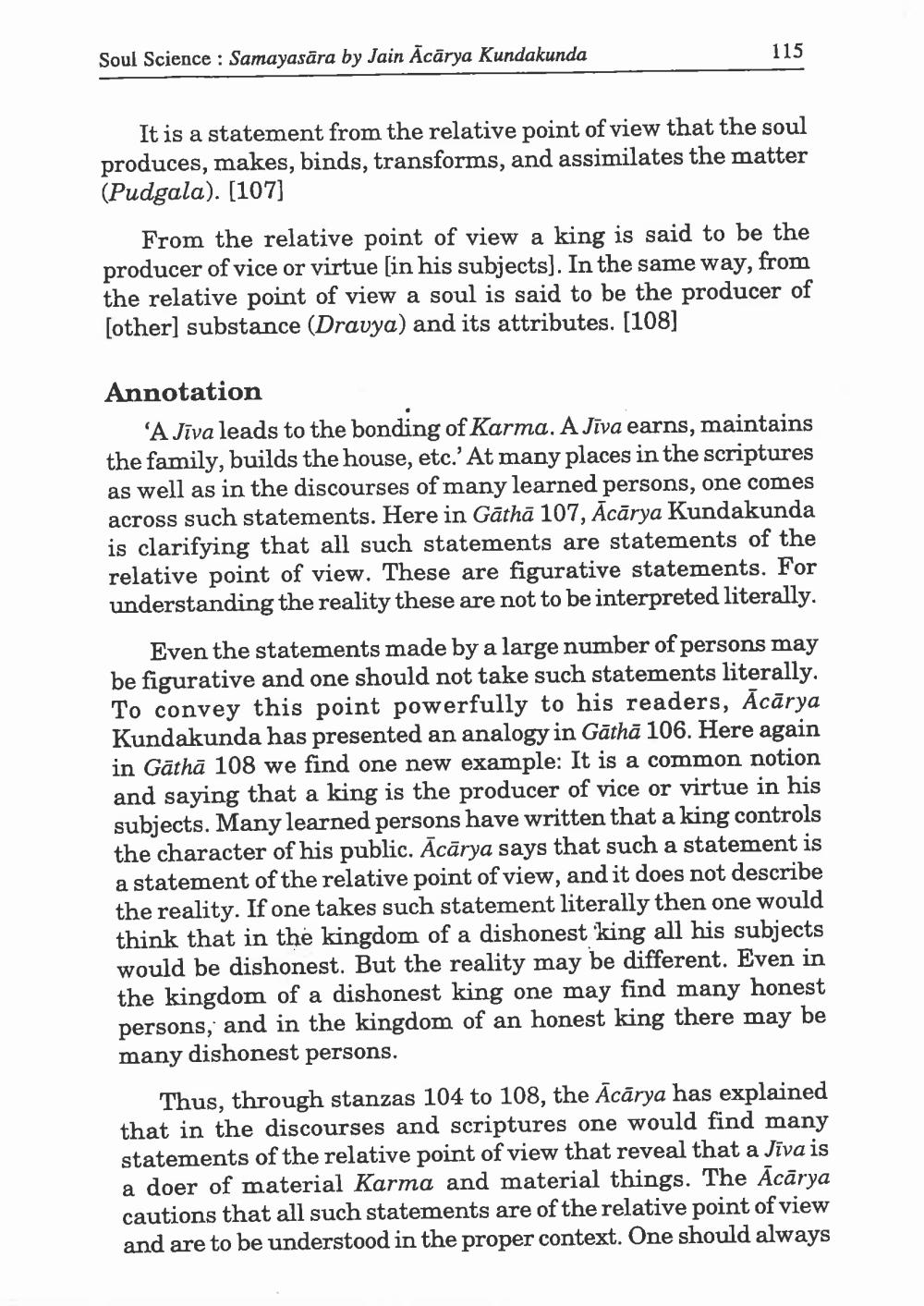________________
Soul Science : Samayasāra by Jain Ācārya Kundakunda
115
It is a statement from the relative point of view that the soul produces, makes, binds, transforms, and assimilates the matter (Pudgala). [107]
From the relative point of view a king is said to be the producer of vice or virtue [in his subjects). In the same way, from the relative point of view a soul is said to be the producer of (other) substance (Dravya) and its attributes. [108]
Annotation
'A Jīva leads to the bonding of Karma. A Jiva earns, maintains the family, builds the house, etc.'At many places in the scriptures as well as in the discourses of many learned persons, one comes across such statements. Here in Gathā 107, Ācārya Kundakunda is clarifying that all such statements are statements of the relative point of view. These are figurative statements. For understanding the reality these are not to be interpreted literally.
Even the statements made by a large number of persons may be figurative and one should not take such statements literally, To convey this point powerfully to his readers, Ācārya Kundakunda has presented an analogy in Gāthā 106. Here again in Gāthā 108 we find one new example: It is a common notion and saying that a king is the producer of vice or virtue in his subjects. Many learned persons have written that a king co the character of his public. Ācārya says that such a statement is a statement of the relative point of view, and it does not describe the reality. If one takes such statement literally then one would think that in the kingdom of a dishonest king all his subjects would be dishonest. But the reality may be different. Even in the kingdom of a dishonest king one may find many honest persons, and in the kingdom of an honest king there may be many dishonest persons.
Thus, through stanzas 104 to 108, the Ācārya has explained that in the discourses and scriptures one would find many statements of the relative point of view that reveal that a Jīva is a doer of material Karma and material things. The Ācārya cautions that all such statements are of the relative point of view and are to be understood in the proper context. One should always




